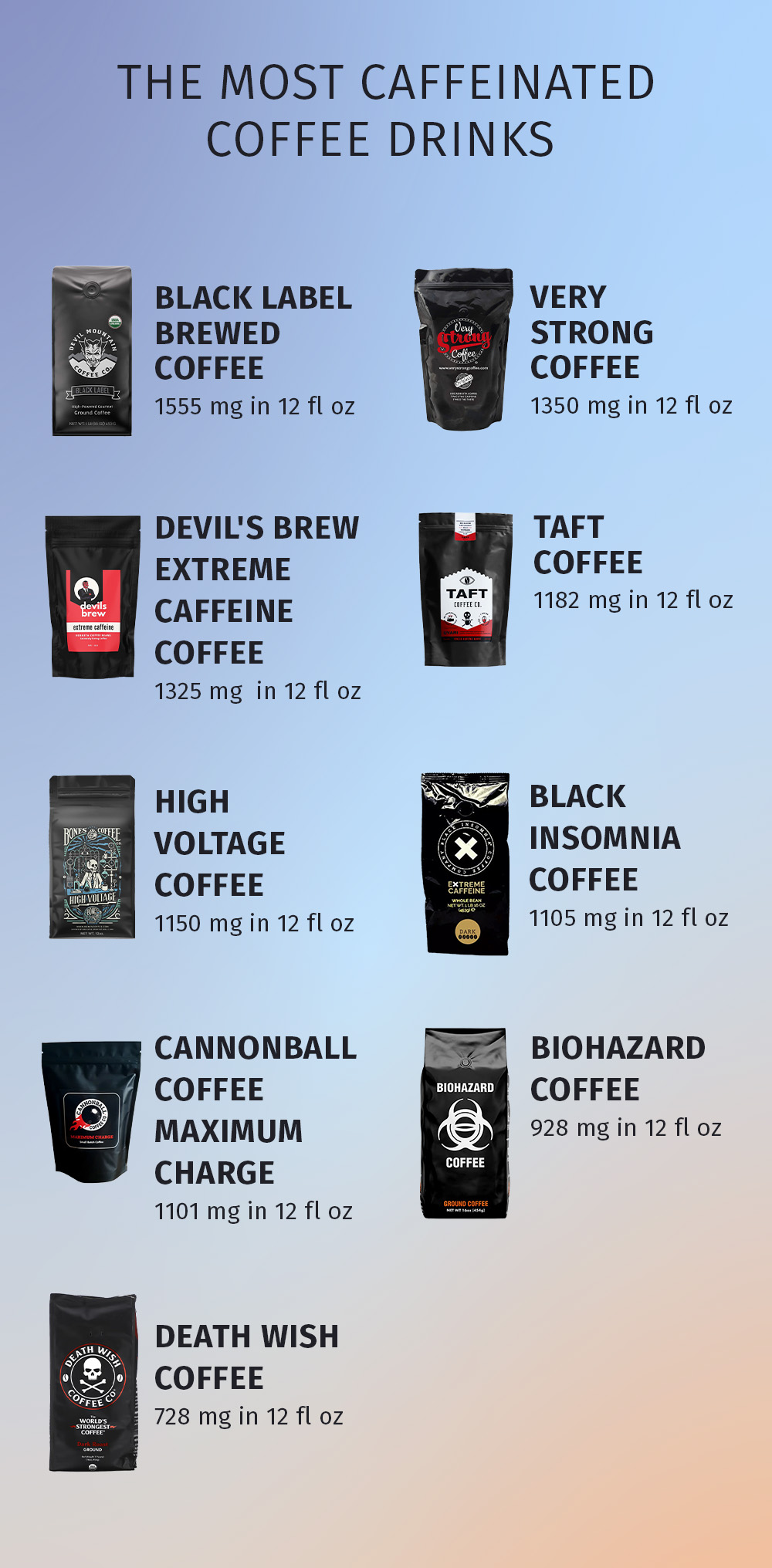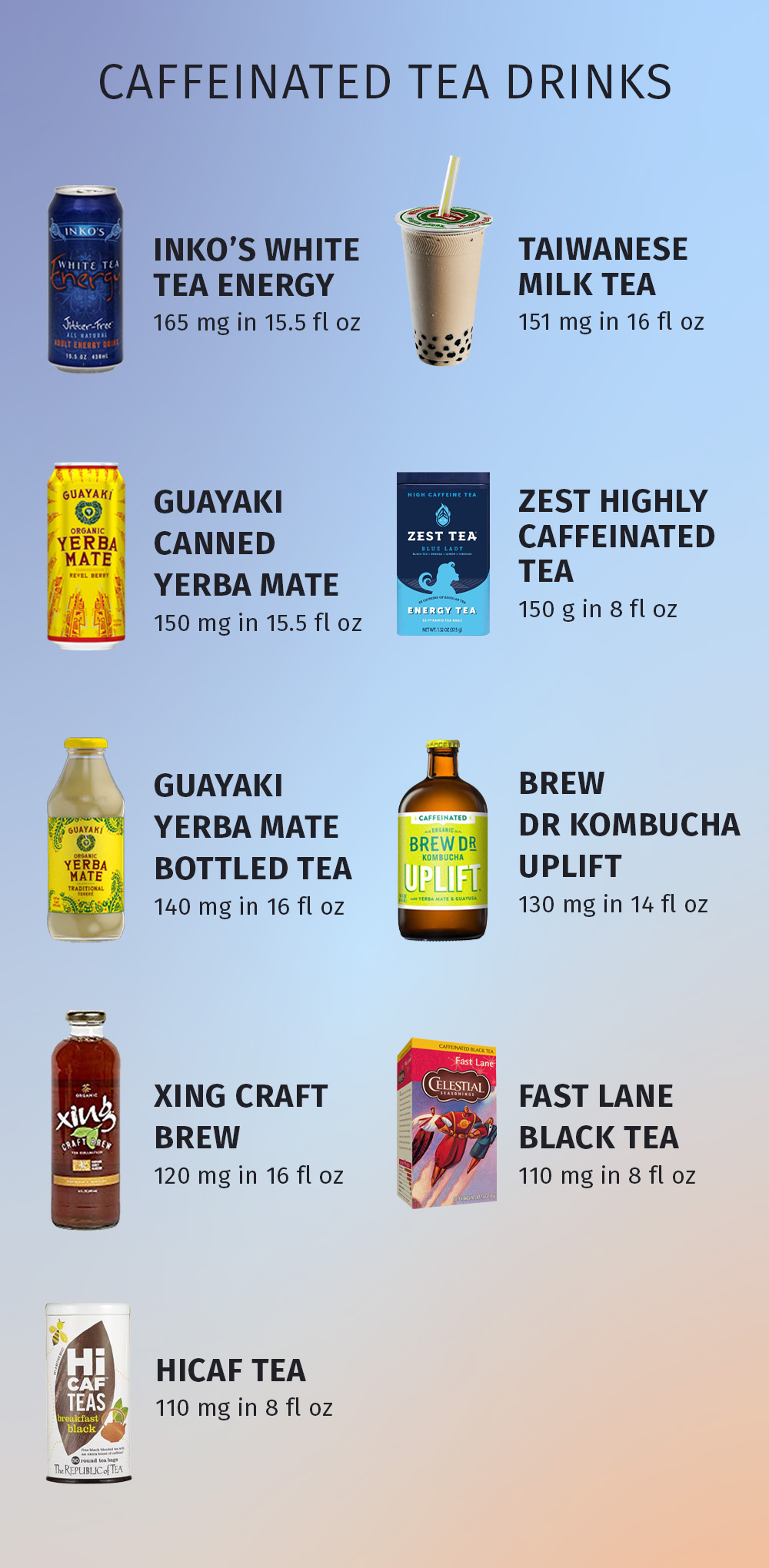We have all experienced a sleepless night. Sometimes, the tossing and turning could have been avoided if we didn’t drink so much coffee. But how much can caffeine actually affect our sleep?
Because everybody metabolizes caffeine differently, and their internal reactions to caffeine can be wildly different, the effects truly depend on the individual. Keep reading to learn more about how caffeine affects sleep.
What Is Caffeine?
Caffeine is a stimulant that naturally occurs in nature and is found in certain leaves and seeds. Most people come into contact with caffeine on a regular basis, as it can be found in teas, coffees, foods, and even medicines.

How Does Caffeine Affect the Body?
When caffeine is absorbed in the body, it can affect different people in different ways. Dr. Victoria Chan, who practices naturopathic medicine, says, “The metabolism of caffeine is primarily regulated by an enzyme called CYP1A2, which is responsible for breaking down caffeine in the liver. Research has identified several genetic variations that can affect the activity of CYP1A2, leading to differences in caffeine metabolism and tolerance between individuals.”
So while some people may be heavily affected by just a small amount of caffeine, others can drink larger amounts and feel little to no side effects.
Caffeine Side Effects
Many people have experienced the jitters after a strong cup of coffee, but there are many other side effects that could be experienced if you have too much caffeine. Dr. Chan filled us in on the side effects associated with the overuse of caffeine:
- Anxiety and restlessness: Caffeine is a stimulant that can cause anxiety and restlessness, especially in high doses. This can lead to feelings of jitteriness, nervousness, and even panic attacks.
- Insomnia: Caffeine can increase the amount of time it takes to fall asleep and reduce the quality of sleep. This can lead to insomnia and other sleep disorders.
- Digestive issues: Caffeine can irritate the lining of the stomach and increase acid production, which can lead to heartburn, stomach ulcers, and other digestive issues.
- Dehydration: Caffeine is a diuretic, which means it can increase urine output and lead to dehydration. This can cause headaches, fatigue, and other symptoms.
- High blood pressure: Caffeine can cause a temporary increase in blood pressure, especially in people who are sensitive to its effects. This can increase the risk of heart disease and stroke.
- Addiction and withdrawal: Caffeine is a psychoactive substance that can lead to addiction in some people. When some people abruptly halt their caffeine intake, they experience withdrawal symptoms such as headache and fatigue.
How Much Caffeine Is Too Much?
Many people love the benefits that caffeine provides, but there is a risk of having too much caffeine. Kirsten Jackson, a consultant dietitian, said the daily limit is 5.7 mg of caffeine per 2.2 lb. This means if you around 198 lb, you should not consume over 513 mg of caffeine per day. For reference, an eight-ounce cup of coffee typically has about 95 mg of caffeine.
For pregnant people, a total of 200 mg per day is thought to be safe. Children and adolescents (ages 3-18) can have up to three mg per kg of body weight without experiencing negative side effects.
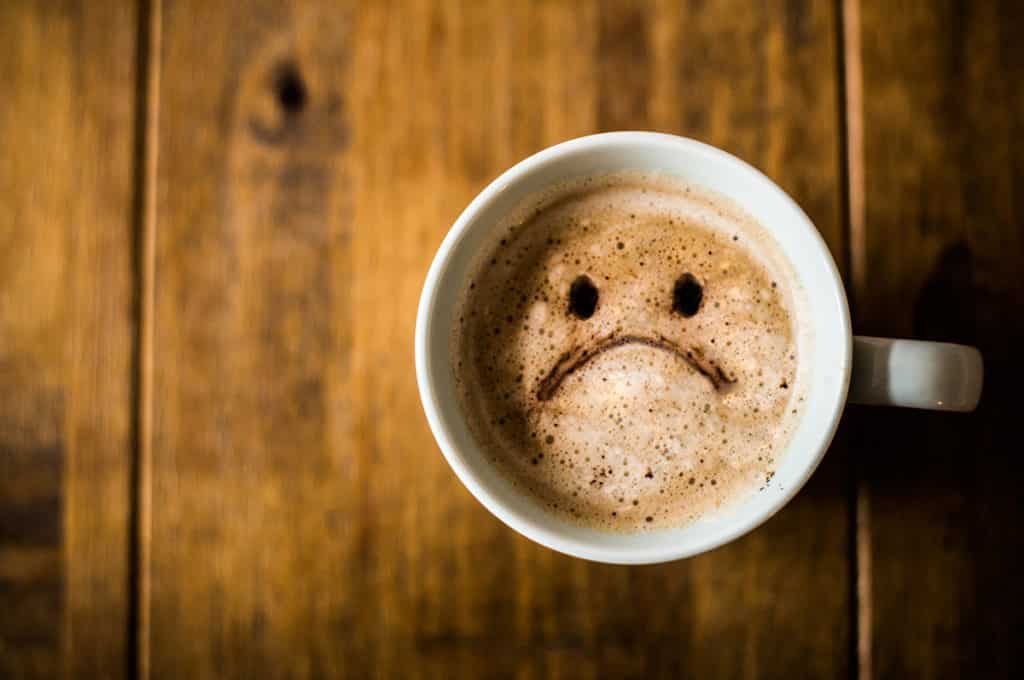
That said, everyone metabolizes caffeine differently. According to Dr. Chan, these are some of the aspects that could influence how you metabolize caffeine:
- Age: Older individuals may metabolize caffeine more slowly, leading to a longer duration of caffeine in their system.
- Body weight: People with higher body weight may have a higher caffeine tolerance, and caffeine may be eliminated more quickly from their system compared to individuals with lower body weight.
- Metabolism: People with a faster metabolism may eliminate caffeine more quickly from their system than those with a slower metabolism.
- Genetics: Genetic factors can influence caffeine metabolism, and some individuals may be more sensitive to caffeine than others.
- Liver and kidney function: The liver and kidneys play a vital role in eliminating caffeine from the body, and any impairment in their function can lead to a longer duration of caffeine in the system.
- Food and drink consumption: Consuming food or drinks that slow down caffeine metabolism, such as alcohol, can prolong the duration of caffeine in the system.
- Medications: Certain medications, such as birth control pills and antidepressants, can slow down caffeine metabolism, leading to a longer duration of caffeine in the system.
Assessing Caffeine Levels
The best way to monitor the amount of caffeine we take in on a daily basis is to know which drinks, foods, and medications are the highest in caffeine.
Most Caffeinated Drinks
Beverages that contain a lot of caffeine are usually part of everyday consumption. While a little bit of caffeine isn’t bad for you, it’s a good idea to know your limits and cut back on a few of the beverages that could cause side effects.
- Coffee: An eight-ounce cup of coffee contains about 95 mg of caffeine. If you are drinking instant coffee, you’ll be happy to know that it only contains around 60 mg per cup. While many believe that decaffeinated coffee contains no caffeine, it actually contains about four mg of caffeine per cup.
- Espresso: If you are looking for a buzz, then espresso will do the trick with 65 mg of caffeine per shot. Just be sure to stay away from espresso close to bedtime.
- Matcha: This tea also has a very high caffeine content of 60 – 80 mg per cup.
- Black tea: Black tea also has a high caffeine content in comparison to that of other teas with 60 – 75 mg per cup.
- Green tea: This beverage has a lower caffeine content of 15 – 30 mg per cup.
- Soda: While each soda contains different levels of caffeine, you can get a general estimate when looking at dark diet soda which usually sits at around 40 mg of caffeine per can. Mountain Dew contains slightly more sitting at around 55 mg of caffeine.
- Energy drinks: Sixteen-ounce energy drinks have a high caffeine content of about 170 mg. This is something that smaller people, or people that are more sensitive to caffeine, should stay away from.
- Energy shots: These concentrated shots of energy contain only two ounces of liquid but have a high caffeine content of 200 mg. This is another product that may cause negative side effects for those that are sensitive to caffeine.
If you are looking for a beverage to enjoy before bedtime, stay away from anything with caffeine and opt for an anti-energy drink instead.
Foods That Contain Caffeine
As we all know by now, nutrition and sleep are interlinked. If you are consuming high levels of caffeine through the food you eat, it will likely affect your sleep.
Among the foods that contain the most caffeine are chocolate and chocolate-flavored treats. Dark chocolate and baker’s chocolate contain the most, with a range of 20 – 35 mg per ounce.
The Kola Nut can be eaten as-is, but you’ll commonly find it in sodas. It has a high caffeine content of between two and three percent.
Protein shakes are great for a post-workout treat, but many of the coffee and chocolate-flavored powders also contain caffeine. The amount can range anywhere from 10 – 95 mg per serving.
Medicines with Caffeine
Caffeine is often found in medicine. It can help prevent drowsiness and improve the effectiveness of certain painkillers, which is why it’s often listed as an ingredient in over the counter medication.
The use of caffeine in medicine is there to improve the patient’s experience, but it is good to be aware that it’s present so you can measure your caffeine intake. Dr. Marinov gave us a list of over-the-counter medications containing caffeine:
Please note: Whether or not these medications are suitable for you is at the discretion of your medical provider. The information found in this post should not be used as medical advice.
How Caffeine Affects Sleep
Once caffeine is consumed, it is absorbed by the body very quickly and makes its way to the brain. Once in the brain, caffeine blocks the adenosine receptors that make you feel sleepy. That’s why caffeine tends to make people feel more awake and rested.
However, not everyone feels more alert after consuming caffeine. Some people find that coffee makes them sleepy. This can be for a variety of reasons, including stress, dehydration, high caffeine tolerance, or genetics.
Can Caffeine Cause Sleep Apnea?
Sleep Apnea is a sleep condition that causes someone’s breathing to stop and start during their sleeping hours. While some studies show that caffeine can have a negative impact on those suffering from sleep apnea, other studies show that caffeine intake makes no impact.
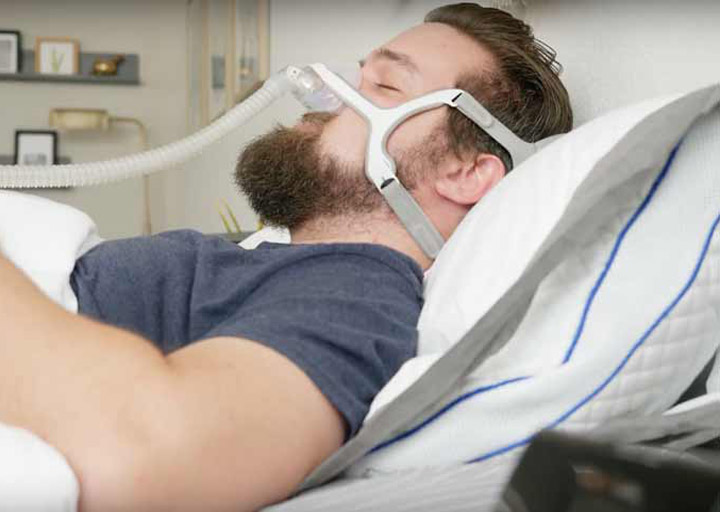
One study showed that caffeine in sodas could negatively impact those suffering from sleep apnea, but the caffeine in tea and coffee had little to no effect. If have sleep apnea, you may want to try limiting your caffeine intake to see if it has a positive impact.
Can Caffeine Cause Insomnia?
Studies show that the consumption of higher quantities of caffeine during the day puts people at risk for insomnia and sleep disruptions during the night. If you are someone that struggles to get to sleep at night or wakes up frequently, you may want to cut down your caffeine intake or eliminate it from your diet completely.
Does Caffeine Cause Sleep Deprivation?
While caffeine by itself cannot cause sleep deprivation, it can trigger a cycle that leads to sleep deprivation over time. If you consume too much caffeine during the day, it can inhibit your ability to sleep or get good quality sleep during the night. The next day, you may feel lethargic, sleepy, and grumpy. Then, you may reach for a cup of coffee to stay alert during the day, continuing the cycle.
Can Caffeine Cause Sleep Paralysis?
Sleep paralysis takes place between the point of sleeping and waking up, and it gives a person a feeling of consciousness while being unable to move. This can happen when someone suffers from insomnia, disrupted sleeping patterns, or extreme stress.
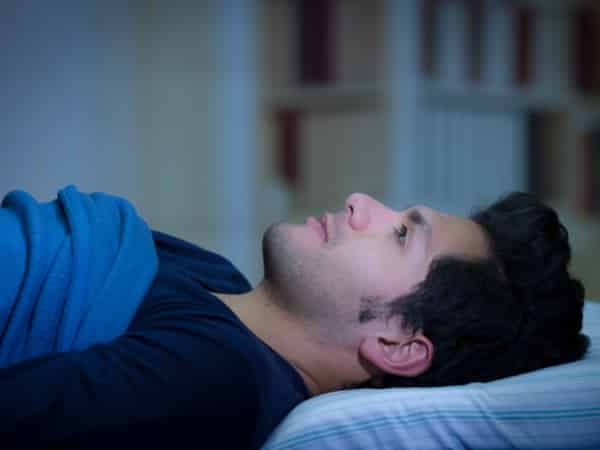
While caffeine doesn’t directly cause sleep paralysis, it can cause insomnia which is associated with sleep paralysis. If you regularly experience sleep paralysis, you may want to limit your caffeine intake during the day and focus on getting quality sleep every night.
When to Stop Drinking Caffeine Before Bed
A study by the Journal of Clinical Sleep Medicine tested the effects of caffeine on participants’ sleep patterns. They found that when people consumed caffeine three to six hours before bedtime, it negatively impacted their sleep.
Based on this research, it would be best to stop drinking caffeine at least six hours before you go to bed.
How Much Caffeine Affects Sleep?
The amount of caffeine that can affect your sleep is completely dependent on when you consume it. Twenty five mg of caffeine will likely affect your sleep if you consume it an hour before bedtime, but if you consume it in the morning, you shouldn’t have issues.
However, caffeine tolerance depends greatly on a person’s age, weight, and metabolism. It is best to stay well below your recommended daily intake of caffeine to ensure you don’t experience adverse side effects.
How Long Does Caffeine Affect Sleep?
The amount of time caffeine stays in the body changes from person to person. But in many cases, it can take up to 24 hours to get it out of your system altogether.
Dr. Marinov says, “Caffeine has a half-life of about four to six hours. This means that five hours after taking caffeine, your body will eliminate half of it.”
To ensure caffeine has completely left your system by the time you go to bed, you may not want to consume caffeine after noon.
How to Get Caffeine Out of Your System to Sleep
We asked Dr. Chan how to encourage the most efficient metabolism of caffeine out of your system, and these were the tips she gave us:
- Drink plenty of water: Drinking water can help flush caffeine out of your system more quickly, because it increases urination and promotes the excretion of caffeine through your kidneys.
- Exercise: Engaging in physical activity can help speed up your metabolism and promote blood flow, which can help eliminate caffeine from your system.
- Get enough sleep: Getting enough sleep is important for your overall health and can also help your body get rid of caffeine more efficiently.
- Avoid additional caffeine: Avoiding additional sources of caffeine, such as coffee, tea, energy drinks, and chocolate, can help prevent further caffeine accumulation in your system.
- Activated charcoal: This can help absorb caffeine and flush it from your system.
- Milk Thistle: Milk thistle is an herb that has been used for centuries to support liver function and aid in detoxification. It may help increase the production of glutathione, a key antioxidant that plays a role in detoxification in the liver.
- N-Acetyl Cysteine (NAC): NAC may help increase the body’s production of the antioxidant glutathione. NAC has been shown to support liver function and aid in detoxification.
- Magnesium: Magnesium is an important mineral that plays a role in many bodily functions, including detoxification. It may help support liver function and aid in the elimination of toxins, including caffeine.
- Vitamin C: Vitamin C is a powerful antioxidant that can support the body’s natural detoxification processes. It may also help increase the production of glutathione.
- B Vitamins: B vitamins, including B6, B12, and folate, play a key role in liver function and detoxification. They may help support the body’s natural detoxification processes and aid in the elimination of caffeine.
How to Get Energy Without Caffeine
Your body has its own clock that it uses to gauge how much energy you need at different times of the day, known as circadian rhythm.
By exposing yourself to sunlight early on in the day, you are telling your body it is time to wake up. Sunlight exposure can help people stay awake during a long shift at work and optimize brain function in the morning.
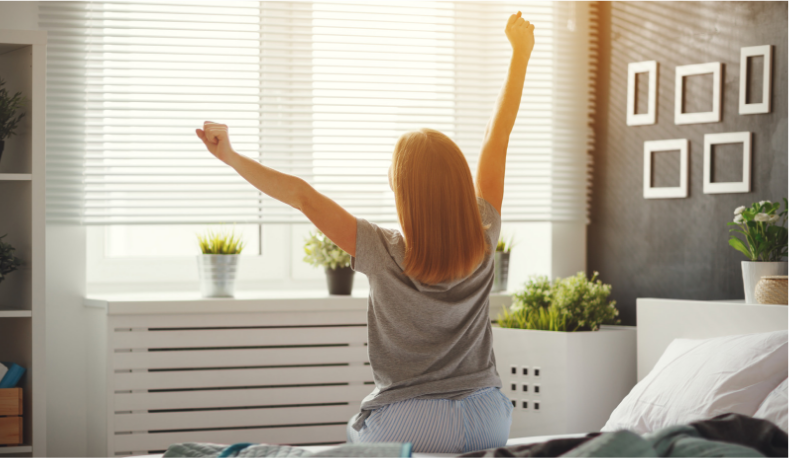
You can also replace your daily caffeine fix with something else entirely. maca root is a great alternative to caffeine because it helps boost energy and endurance while reducing anxiety and stress – something that caffeine is unable to do. If you are looking for an adaptogen that provides sustained energy without causing adrenal stress, then maca root is a great option.
Caffeine FAQs
Is caffeine a drug?
Caffeine is considered a drug because of the way it increases the activity of the central nervous system and brain.
Can you sleep off caffeine?
Depending on your personal genetics, you might be able to sleep directly after consuming caffeine. That said, it is likely you won’t have the best quality sleep as caffeine often creates disturbances even if you manage to fall asleep.
Can caffeine help you sleep?
No, caffeine does not help you to sleep unless there is another component at play. This could be something like dehydration, which makes you sleepy. In this case, consuming coffee will further dehydrate you and make you more tired.
Can caffeine replace sleep?
Caffeine blocks sleep-inducing chemicals in the brain and increases adrenaline which makes you feel more alert. While this is a temporary solution for staying awake, if you replace sleep with caffeine too often it will lead to the accumulation of sleep debt which is not good for your health. You will not be able to replace sleep with caffeine, so it’s crucial that your body gets to rest for recovery and well-being.
Does caffeine affect deep sleep?
A study shows that caffeine consumed in larger quantities close to bedtime can have an effect on the number of hours the body is able to sleep, as well as the quality and quantity of REM sleep.
If you are trying to get more deep sleep, it’s best to avoid caffeine or limit it to small amounts early on in the day.

